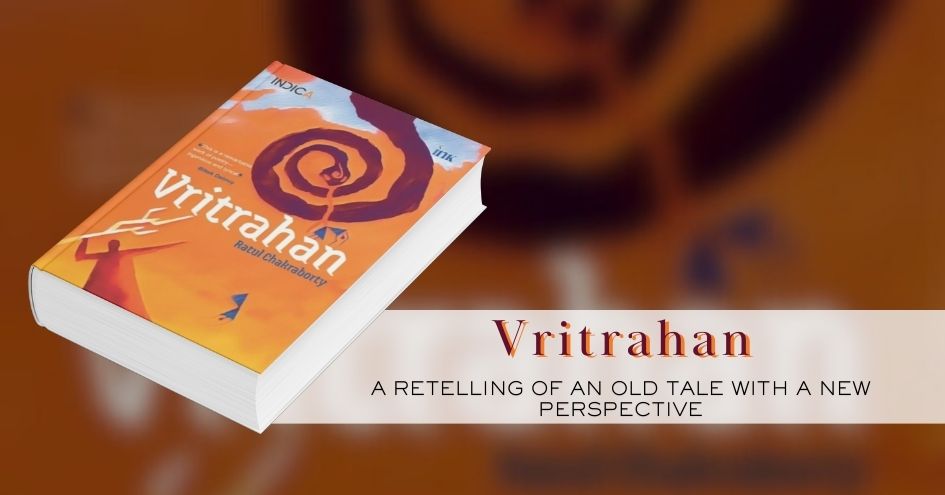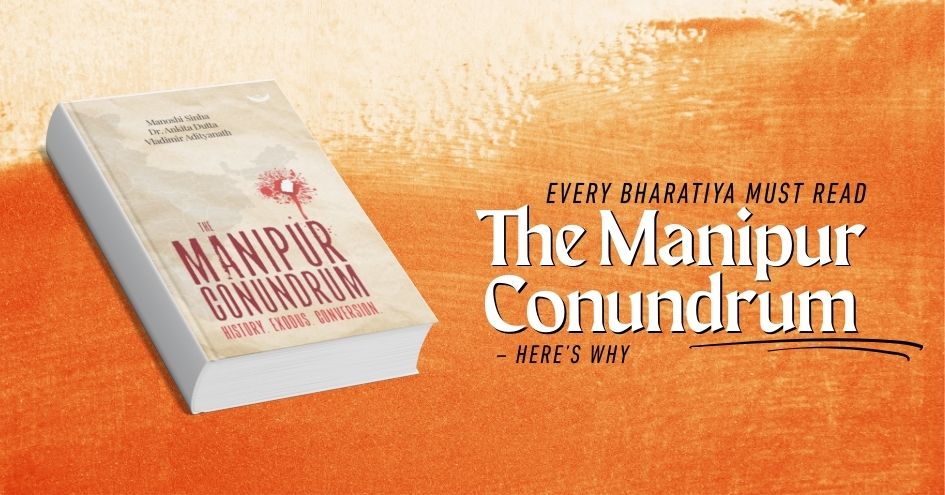
“A grand chariot approached the rest house with the charioteer reining in the Gandhara-bred shell-white stallions to a gentle trot. Uttara’s face brightened for a moment before a frown wrinkled her sunburnt forehead.” The prologue of the book, ‘Draupadi’ commences with an artistic description of the city of Indraprastha where Rajmata Uttara sits wondering in her palace when she sees the arrival of Janamejaya. He is the grandson of Uttara who comes eagerly to check with her the facts about Draupadi, who was being falsified viciously by the villagers to be the reason behind the Kurukshetra war. The tale of the empress is then narrated by the Rajamata to her youthful grandson in the following chapters.
The novel is divided into four parts, ‘Princess of Panchala’, ‘Queen of Indraprastha’, ‘The Empress’ and ‘War’. Each part traces her growth and maturity to handle things. The novelist, Saiswaroopa Iyer, has not written it totally from a feminist perspective like Mahaswetha Devi’s novel with the same title but she has successfully brought out the significance, leadership and emotional assistance of Draupadi that made Pandavas win the war. This book rightly eulogizes the character Draupadi in the epic, ‘Mahabharata’, without any extra fabrication to the truth. It even gives the reason why we should learn history, “The whole point of reciting the records is to learn from the exploits of our ancestors, take pride in their valor, strength and courage, while gaining wisdom from the stories of their tribulations.”

Saiswaroopa Iyer is an alumnus from IIT Kharagpur. She is an investment analyst turned satisfied writer. Saiswaroopa is the bestselling author of 4 novels and all of them are based on legendary female protagonists from Ancient Indian Literature. Her first book was ‘Abhaya’. An assertive and idealistic Princess meets Vasudeva Krishna. The second novel ‘Avishi’ is based on a Rig Vedic hymn and it has been acquired for screen adaptation by a major studio. Her other book ‘Mauri’, speaks about a few lesser known characters in the Mahabharata. Ghatotkacha features in it. The latest ‘Draupadi - The Tale of an Empress’ has been critically acclaimed and is nominated for the prestigious DSC Prize for South Asian Literature 2019. Saiswaroopa is passionate about Ancient Indian history, philosophy, and literature. She holds a certificate in Puranas from Oxford School of Hindu Studies. She is a trained classical singer as well and her favourite area is the compositions of Annamacharya. She has been awarded a gold medal by Tirumala Tirupati Devasthanam for the same. Saiswaroopa is a member of the Indic Academy and lives in Bengaluru with her husband and daughter.
Draupadi is born intuitive and keen at observing from early years of her life. This can be observed in the first part of the book which describes her life at Panchala. Even though her life at maternal home is pleasant, she could not forget the instance where Draupada, the king of Panchala, is confined by the masqueraded Pandavas under the order of Drona, which first brings her the name of Pandavas. She initially could not understand the power game which is being played behind her between the Kuru and Panchala dynasties. The first part ends with her Swayamvara where the Pandavas grab her hand outperforming all other kings of various dynasties in the bridal competition. She agrees to undergo a polyandrous marriage to the five brothers under Mother Kunti’s request to keep their lineage united. It is not an easy task that she has accepted because each one of the Pandavas is different in nature as they are born out of Niyoga. She, with her mission to protect the unity and vision to make Pandavas head the Kuru dynasty, went through many hardships. Indraprastha is the result of her panoramic vision for the countrymen. She is straight-forward, clear and ruthlessly virtuous in her moral code of conduct. She understands the characters, strengths, weaknesses of all Pandavas and lives with them proudly. But fate brings the turn of events through the game of dice. She is disrobed, undergoes profane tortures and is banished along with the Pandavas from their own land. This doesn’t dishearten her but made her strong enough to support her husbands through the hard times.
Yudhistira, the eldest of the Pandavas, loses her in the game of dice; although as a Queen of Indraprastha, she, definitely, would have got transitory animus feelings, but never did she lose respect for the Pandavas. We could notice that she ever addresses Yudhistira as Samrat and he reciprocates equal respect calling her Samragni. She is invariably resourceful providing Pandavas with ideas and guidance on what has to be done and how to move forward. She is a strategic decision maker and can be rightly called the Shakthi behind the Pandavas. The writer says, “Draupadi is called the Ichhashakti or driving desire, Krishna is the Gnanashakti - power of wisdom and the Pandavas - the Kriyashakti, the will to see the vision of Draupadi take shape into reality.”
Lord Mahavishnu in his human form, Vasudeva Krishna addresses Draupadi affectionately as Sakhi and helps them bring calmness in their hearts. Whenever Draupadi falls into turmoil of her thoughts, Krishna is always there to help her overcome it. In turn, Draupadi emotionally supports Subhadhra and Uttara to overcome the war effects that has made them dumb. Despite overcoming the emotional trauma of losing her sons, she stands gallantly firm on Dharma. She plays a vital role in encouraging Yudhistira, the Dharmaputra to arise and fight for Dharma from his hesitation.
Every object and instance of the world can be sighted from different perspectives and Mahabharata is no exception. It can be viewed through the eyes of different characters in the epic and one is able to see different stories drawn from the big narrative. This type of alternative perspective gives a different flavour to it but more than that it gives a detailed subjective trait and the mind-set of a character. The novelist has successfully retold the legendary narrative from Draupadi’s perspectives, who is well established in Dharma through anecdotes. She has done justice to the character by rightly naming the novel as ‘Draupadi – A Tale of an Empress. The vital and crucial role of Draupadi is elucidated through an artistic and interesting language which makes readers stick to the novel. Any character undergoes wide castigation until we ourselves experience the experiencer; the book serves the purpose and is an eternal tribute to Draupadi.
NEXT ARTICLE

Saiswaroopa Iyer is an author who needs no introduction. She is one of the authors who pioneered Puranic fiction in India with books exploring tales f...

Indra killed Vritra using his Vajra. Once again, good won over evil and dharma over adharma. This is a story most Bharatiyas know. The story is a pa...

The recently-released book on Manipur titled The Manipur Conundrum – History. Exodus. Conversion. – is the result of tiring efforts by three Bharatiya...